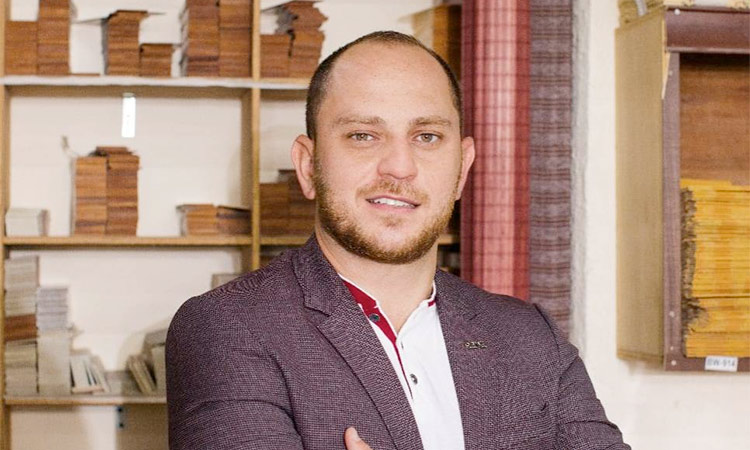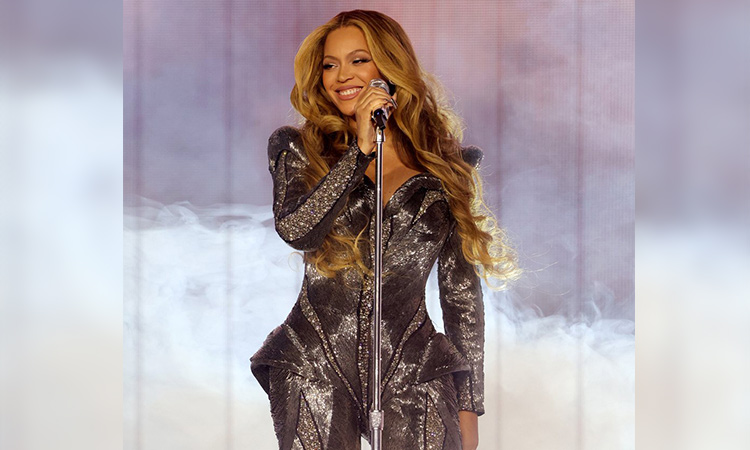
‘Evil’ Review: Season 3 Returns Nastier, Sharper, and Better Than Ever
One of the consistent strengths of “Evil” has been its constant acknowledgment that faith exists in an untold number of forms. Whether taken in relation to a codified religion, a belief in the scientific principles, an outright rejection of both, or none of the above, this is a show with clergy collars and therapist couches that isn’t only confined to one or the other.
Enter Season 3, where the show ventures further into the idea that faith also applies to who becomes worthy of trust and allegiance. Even with a few extra words that don’t have to be slipped by Standards and Practices, the core “Evil” mission remains the same. The wonder trio of psychologist Kristen Bouchard (Katja Herbers), newly ordained priest and accomplished Church assessor David Acosta (Mike Colter), and resident tech expert scientist Ben Shakir (Aasif Mandvi) are still investigating instances of the unusual at the request of local Catholic officials. Yet, after two seasons of leaning into some mighty compelling week-after-week hooks, “Evil” is lessening its dependence on each new episode’s fascinations and fully trusting the people at the core.
In a move that lines up perfectly with the show’s full streaming jump — last season premiered on Paramount+ but still had signs of its outer made-for-CBS shell — “Evil” has become a show about changing expectations. Kristen and David, steadfast on each side of the show’s science/faith pide at the show’s outset, have slowly met in the middle (moves made more explicit by a kiss that serves as both the end of Season 2 and the beginning of Season 3). Through the opening five episodes of this new season, each of them grapple with the ramifications that their jobs continue to have on their respective families: Kristen with her husband and mother and four daughters, and David with his priestly cohort. In the early going, “Evil” also mines the strain Ben feels having to take on job after job, many with images that cut deep enough to leave a psychological scar.

“Evil”
Elizabeth Fisher/Paramount+
In all three cases, it’s addressing the idea that building your professional and spiritual life around a constant assessment of what constitutes evil (and what to do with it) is a textbook recipe for burnout. The show itself shows no signs of slowing, sliding effortlessly into another themed season that returns to the more explicit Season 1 depictions and discussions of demons. But the longer that these characters immerse themselves in this work, the more the remnants of their past successes and failures continue to linger. Ever the capable procedural, “Evil” has finally found the sweet spot of how to layer in its serialized touches and glimpses of past run-ins. The lore will always be there by virtue of their employers. Dial that back ever so slightly, as Season 3 does, and you get a season that thrives on the characters’ relationship beyond the eager puzzle-like hunt for numbers and sigils and signs.
The depth of this season also extends out to the characters who have gone from feeling like bonus cast additions to integral parts of the makeup of this world. Sister Andrea (Andrea Martin, who seems to be having just as much fun on this set as just about anyone) becomes a key way for “Evil” to address the response to people who profess to see what the Church regards as more invisible (or even metaphorical) forces. The quartet of Bouchard daughters have also become a full-fledged unit, doing their best to terrify foes of the family as much as they gleefully take turns scaring each other.
As per usual for shows within the stable of showrunners Michelle and Robert King, there’s an unsurprisingly strong roster of guest stars, highlighted this season by the arrival of the mysterious Victor Leconte. Played with delicious restraint by Brian D’Arcy James, Victor’s hovering around the season gives “Evil” another addition to its genre veneers that it can pop on and off like one of any of these characters’ stylish winter coats. Without losing the show’s main thread, “Evil” can dip into spy thriller, disaster story, headline response, or, yes, horror tale with an ease that gets more impressive with each passing episode.

“Evil”
Elizabeth Fisher/Paramount+
That tonal comfort doesn’t mean this is a show content to rest on a baseline level of eerie practical jump scares. Season 3 matches its parade of prosthetics-clad impish minions with a gradual consideration of how much influence organized religion can and should have in the lives of community members, whether or not they share the same faith. One episode offers a more ecumenical look at how faith leaders can provide comfort in times of tragedy. Another examines the intersection between faith and intimacy, and to what extent those can enhance or hamper each other. “Evil” can get under your skin when it wants to (insidious voices bleeding through a radio always seem to do the trick), but like those on both sides battling for the soul of humanity, it’s in it for the gradual long haul, too.
And this all goes hand-in-hand with the show’s long-established sense of humor, which this season has ventured from the lightly playful into the mischievous. (That starts with the show’s new opening title sequence, complete with falling babies, ascending hands, and composer David Buckley’s bombastic, arpeggio-capped “In the Hall of the Mountain King” riff.) The more that each of these characters has something to hide, the more that “Evil” is able to use that to its advantage. It also helps to have Michael Emerson (as the conniving subverter Leland Townsend) continuing to move through this series with a devilish smirk, delivering lines like “Trolls are the knights of The Father’s chessboard” with an effortless, eerie charm.
Maybe the strongest advance in “Evil” Season 3 is its willingness to embrace some really messy endings. Not that the show was always dead set on tying up each case with a neat bow — just look at where the show was after its fourth episode. The longer “Evil” has gone on, the more that it’s fully entrenched the idea that its characters are fighting fundamentally undefinable forces. See an angel with your own eyes? That only brings 15 more questions about worthiness and intent and interpretation. For these cosmic, millennia-old discussions about the nature of consciousness and choice, even physical proof depends on who wields it. The episode-closing title card, with “Evil” in all caps taking up the entire screen, is more than just a visual flourish. It’s a statement that, as long as the show has a strong tether to the people at its core, there will always be more to investigate.
Grade: B+
New episodes of “Evil” Season 3 will be available each Sunday on Paramount+.
















.jpg?resize=150%2C150&ssl=1)














.jpg?fit=300%2C300&ssl=1)





































